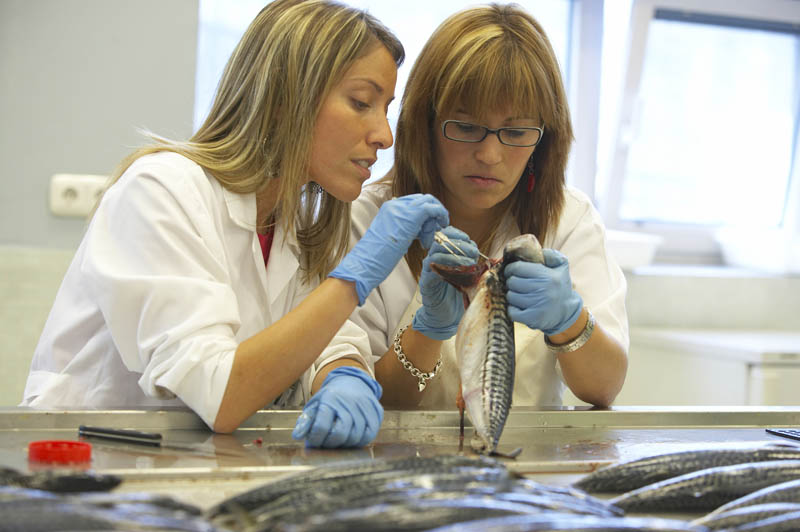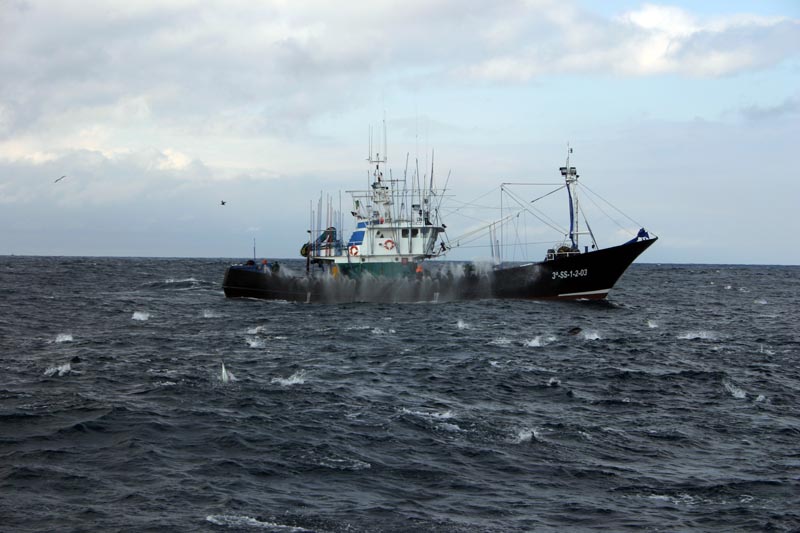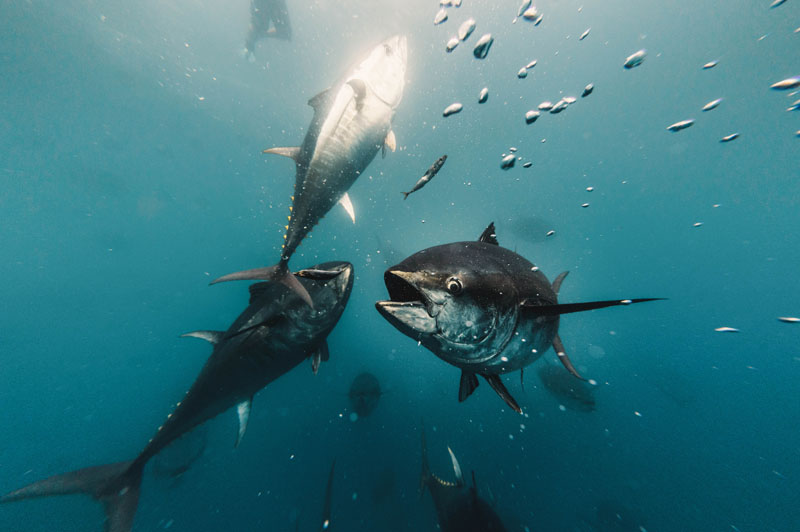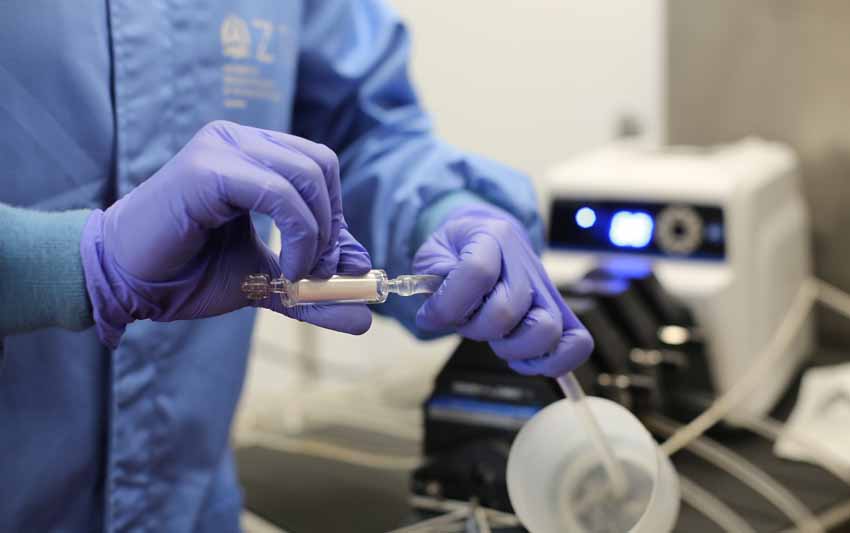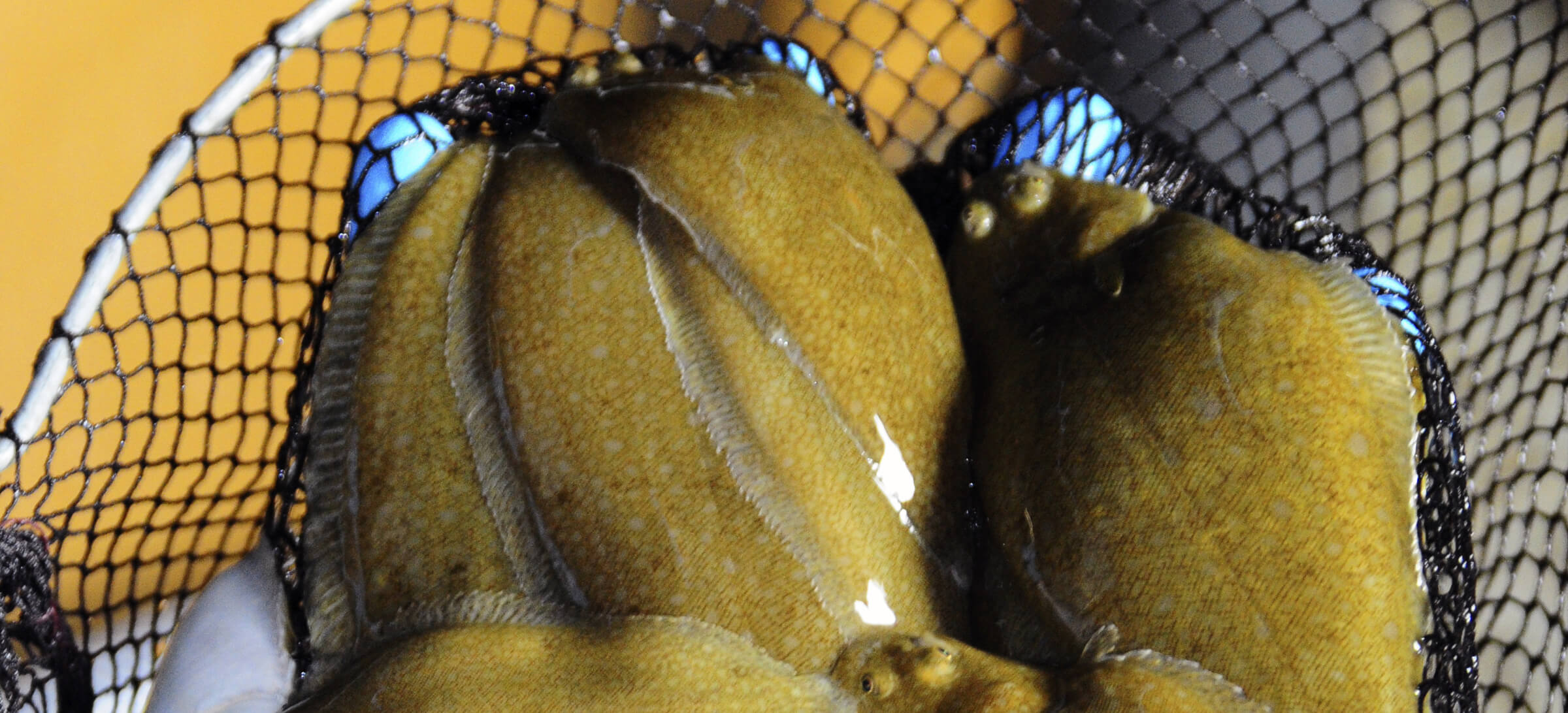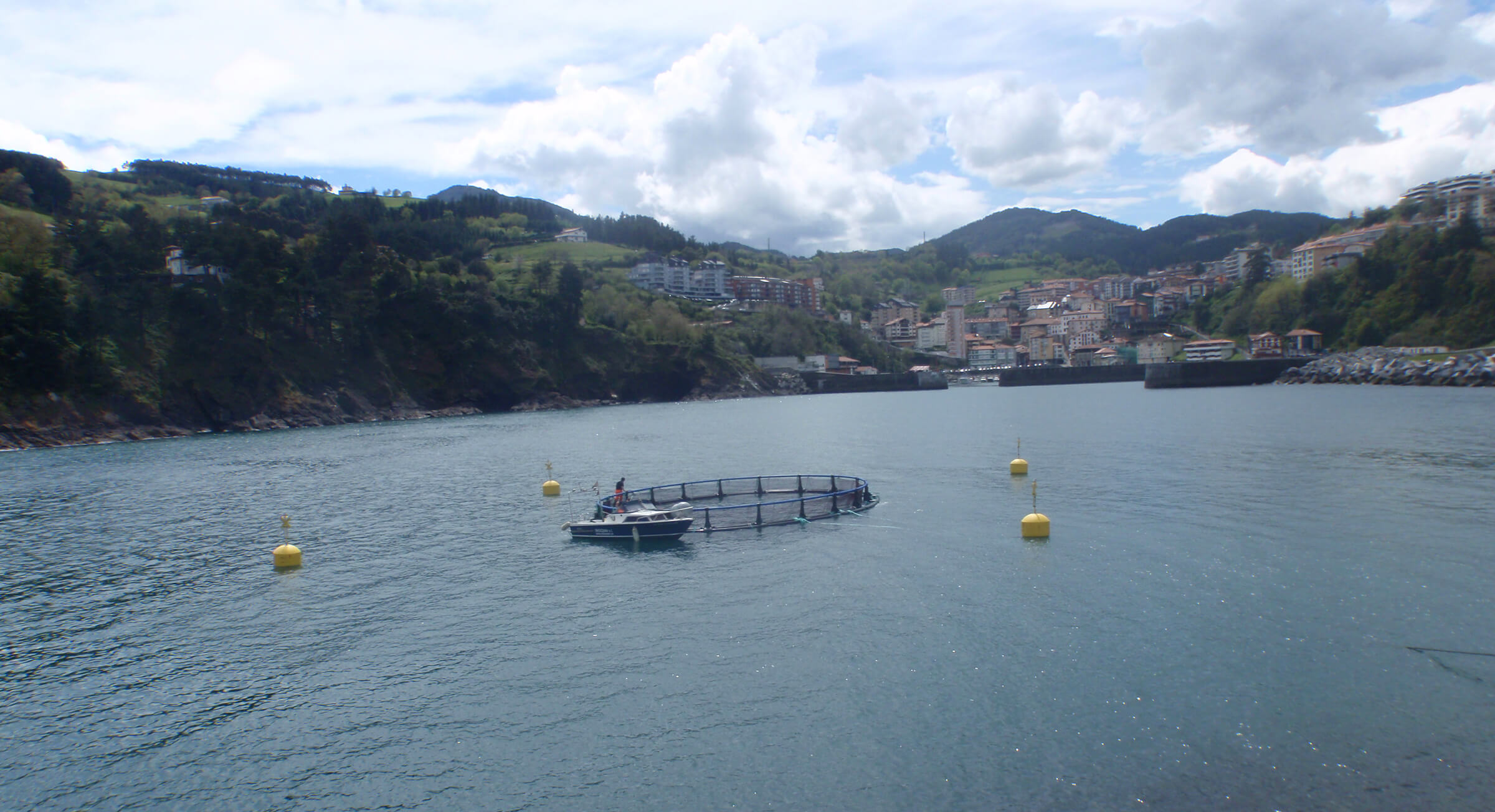Fishery and living marine resource assessment
To achieve a sustainable fishing activity and an economically competitive fleet
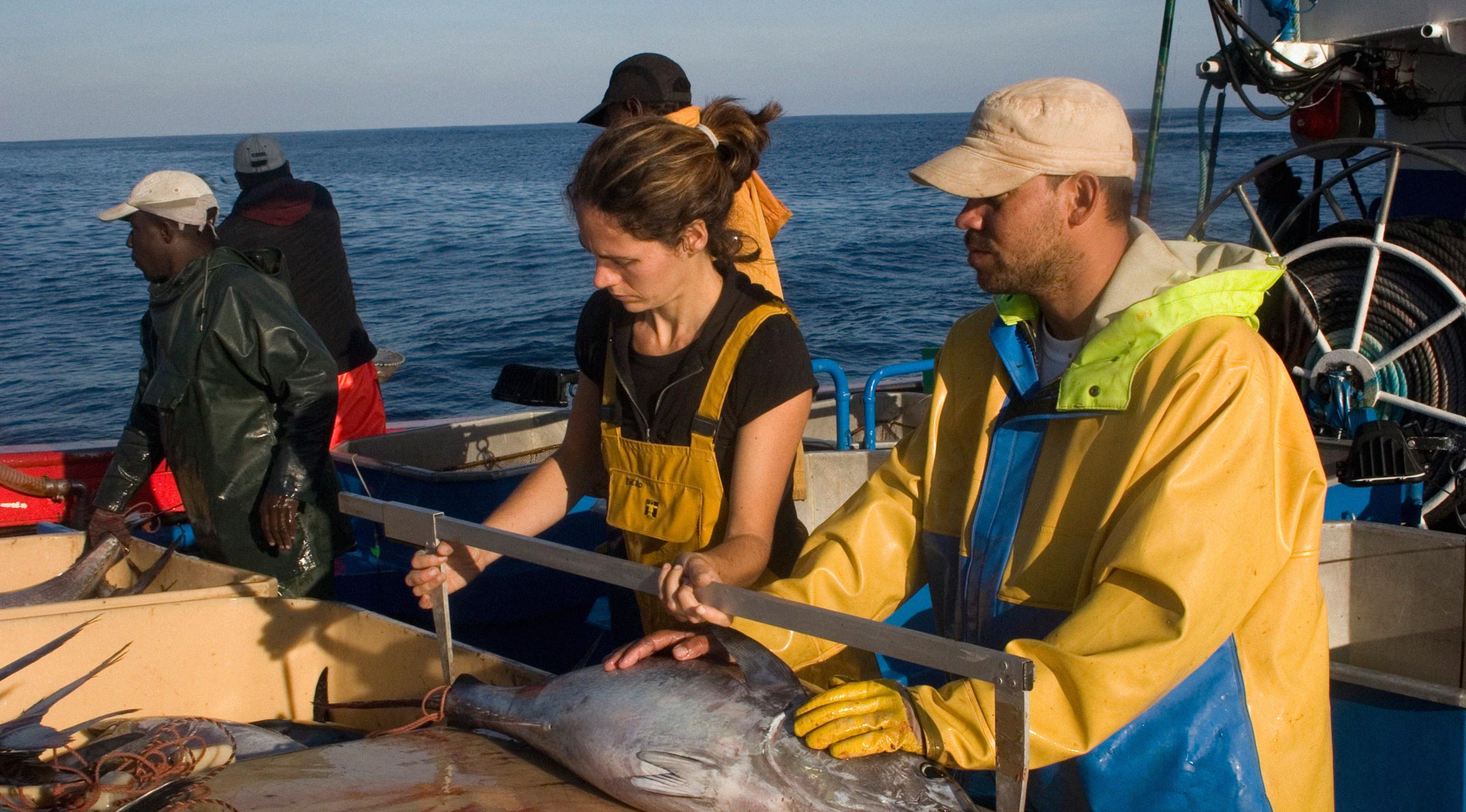
We research to achieve a sustainable fishing activity by an economically competitive fleet with responsible fishing practices. From an ecosystem-based resource assessment approach so as to:
- Oceanographically characterise areas of study.
- Determine habitats and population dynamics.
- Provide scientific recommendations for fishery management.
With this objective in mind, AZTI researchers carry out:
- Surveys at sea with systematic sampling using plankton and fish nets.
- Biomass evaluation of the fish population using direct (egg production method, acoustics) and indirect (CPUE, etc.) assessment methods.
- Population biomass estimates by age.
- Calculation of the accuracy of the different biomass estimates.
- Estimates of the reproductive parameters of the population (partial and total fecundity, egg-laying frequency, atresia, sex ratio).
- Age determination through otolith analysis.
- Integrated resource assessment, combining multiple-source estimates (acoustics, egg production method, catches) and different statistical models.
- Recruitment forecast based on juvenile fish abundance estimates.
- Determination of fish spawning areas and their variability over time.
- Mapping of plankton (eggs and larvae) and ichthyofauna abundance.
- Experimental acoustics: nocturnal acoustics, shallow-water acoustics and multi-frequency acoustics.
- Estimate of acoustics-related parameters: in-situ and ex-situ target strength studies and frequency response of the different fish species.
We research from an ecosystem-based resource assessment approach, to attain a sustainable fishing activity by an economically competitive fleet with responsible fishing practices
Applicable sectors
- Public Administrations.
- Management Bodies.
- Fishermen’s Associations.
- Universities and/or technology centres specialised in the fisheries sector.
Advantages
- Direct knowledge of the biology, variability and abundance of the different marine resources available.
- Awareness of temporary changes in these marine resources.
- Contribution to marine resource sustainability.
- Information for the implementation of management measures (TACs, minimum catch size, closure of areas etc.)
- Ecosystem-based approach to resource assessment.
We work with foreign Public Administrations in the implementation of comprehensive assessment and fishery management methods
Implementation
- A personalised diagnosis of the client’s needs is carried out with the client, seeking the best options.
- Definition of the target area based on the characteristics of the study.
- Delivery formats and means: video, drawings, multimedia, written report, press conferences, scientific and informative papers and others.
Experience
- 25 years’ experience in the comprehensive assessment of fish species and the factors controlling their dynamics.
- Multidisciplinary team with experts in fish species assessment and management.
- High level of expertise in different techniques: resource assessment, growth and mortality (otoliths), fecundity (histology), movement (biophysical models, tagging, otolith microchemistry), oceanographic campaigns.
- We have numerous European contacts in the fisheries biology sector, complementing our fields of activity.
Proven track record
- Sustainable population management and sustainability of extractive fishing activities.
- Opening of closed fisheries (Bay of Biscay anchovy), anticipating recruitment success, with the corresponding economic benefits for the sector.
- Over 100 scientific publications in ISI-indexed journals related to biology and fisheries management.
- External guidance in third-country scientific projects.
- Cooperation with foreign Public Administrations in the implementation of integrated assessment and fisheries management methods.
